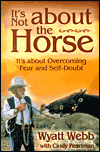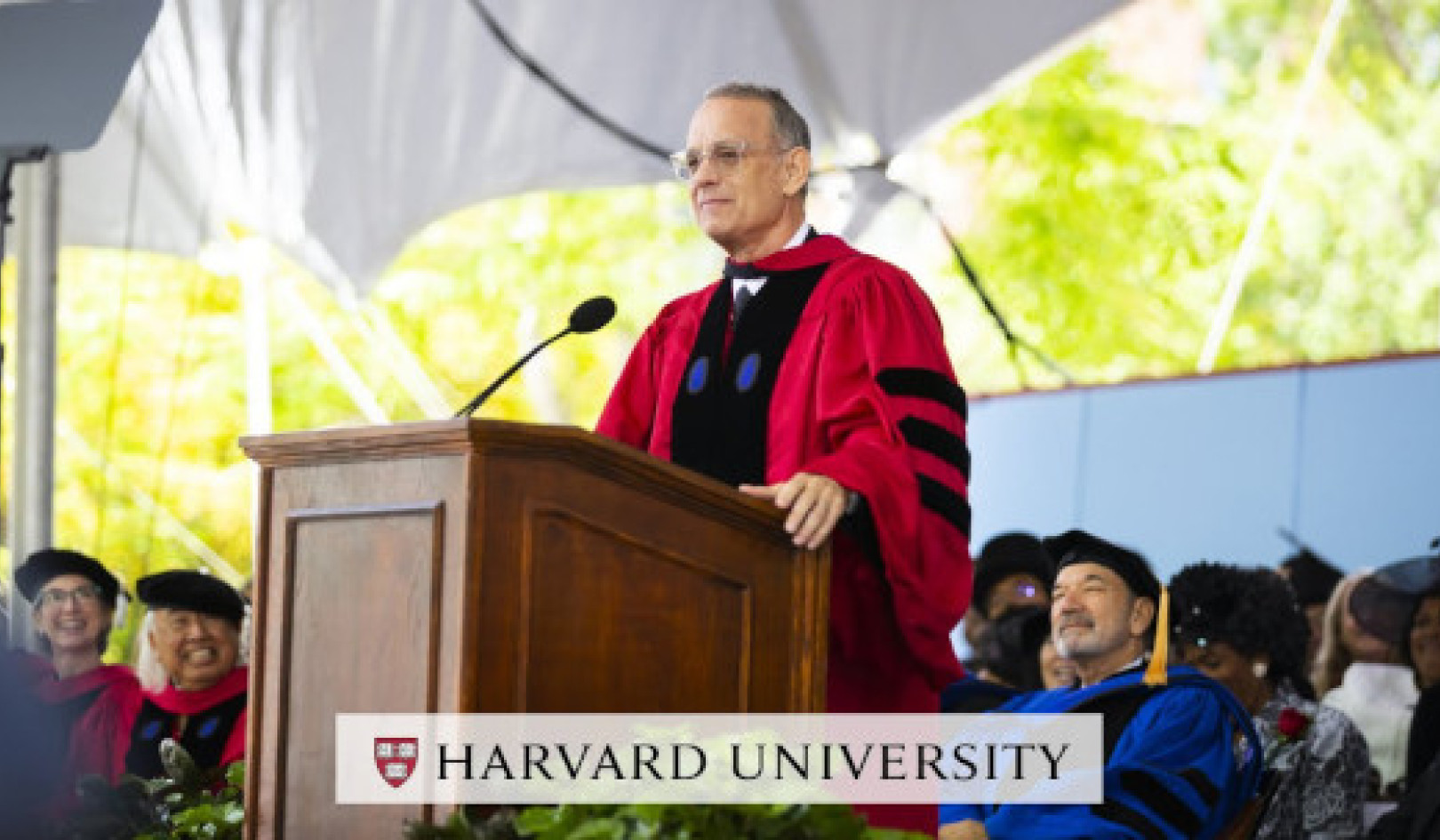
Image by Lolame
Quite often, I spend time with people who are extremely critical of themselves for having multiple failed relationships. The truth is, they're missing the point: We can't fail, because there's no way to do these things wrong. A failed relationship, if you put it into its proper context, is a chance to either wake up or stay asleep, and it's what I refer to as an "AFGE" or "Another Frigging Growth Experience."
If I had a dollar for every time I've experienced one of those, I could have retired 15 years ago!
For all the people I see who have been through horrible breakups, I encourage them to look at the Big Picture -- which is "heal it or repeat it." Most of the relationship problems I've seen have been caused by the unhealthy relationships people have with themselves.
This is a good place for me to share a short, but true, story with you.
A long time ago, a friend of mine told me something that stays with me to this day. He and I were having coffee when a man walked in who, by his mere presence, gave me an immediate emotional charge.
I leaned over to my friend and said, "I don't know what it is about that SOB, but I don't like him."
"How long have you known him?" my friend asked.
"I've never seen him before in my life," I spat, "but I don't like him."
He laughed and said, "Well then, Wyatt, it can't be about him. You have no history with this man. It has to be about you."
In other words, if you spot it, you got it. (It took me a few more years to figure out that this includes good qualities, too.)
"I Thought My Spouse Was Going To Solve My Problems"
Okay, back to the AFGEs. Marriage can certainly be an example of one of these. Let's look at what most people's idea of marriage is. Again and again, I've had married people say to me, "I thought my spouse was going to solve my problems."
The truth is, they're going to give you the opportunity to solve your problems. What a mate usually does is bring your problems right up in your face. They'll offer you the necessary discomfort so that you might wake up and become conscious, which will give you the opportunity to start the process of self-discovery. One of the things I can assure you of is simple: If a marriage is going to be successful, there's always going to be some work involved.
The First Three Months: The Honeymoon Stage
We seem to have bought into a generalized idea of what love means and how it plays out. Did you know that most people have no problems in the first three months of a relationship? There's even a select group who can only do the first three months. They're actually experts at it.
Well, who wouldn't want to be a specialist in this area? Anybody can do those first three months -- after all, it's the warm and fuzzy, fresh and nice time known as the "honeymoon stage." This is where we get lost in each other's eyes and it's all roses and candlelight, as we maintain the illusion of a fairy-tale romance.
Then 'round about month four, somebody burps or farts. Oops! This thing starts to get real. Of course, that's no big deal in a healthy relationship. But for fantasy-based relationships, this is a very big deal!
Personally, I have a strong belief that the actual purpose of each and every union we make in this life is for healing wounds. More often than not, we're unaware of this, due to the fact that we've been conditioned to be externally focused in our relationships. This means that we spend the majority of our time wondering what others are thinking and feeling and making up stories about why they behave as they do.
But as long as we're doing this, it's impossible to be present in the relationship, so we really can't examine what's going on inside ourselves. Instead, we seem to want our relationships to fix whatever we perceive to be wrong with us.
Welcoming Awareness Instead of Self-Criticism
Now, I have a problem with this whole "fixing" concept. In the first place, we're not broken -- we're simply human. Of course we've got some sore spots, bruises, and wounds that haven't healed yet, but if we can just wake up, we can ultimately become our own doctor in these areas. I'm not talking about slapping a Band-Aid on the past and letting it fester for another day. I'm talking about really allowing ourselves to heal from the core of the internal trauma.
The more we can let go of the self-criticism, the higher the degree of healing will be. Only then will our relationships with each other improve, because love can't truly exist without self-awareness. Love is a conscious choice, whose genesis lies in basic respect for one's self.
Cleaning Up Unfinished Family History
So when we clean up the unfinished business in ourselves and in our family history, we can cut down on the AFGEs. Here's an example of this.
One day, Emily, a woman in her 30s who had devoted most of her time to building a successful career, came out to the ranch. She claimed to not have any problems . . . other than her inability to find the proper mate. As she put it, "All the guys out there my age are nuts. They're mama's boys who don't want to make a commitment, or they're cheaters and liars. Did common decency just skip an entire generation of men?"
It was obvious that she was looking in the wrong place for the answer to her dilemma. I asked, "How do you know these guys are nuts? And why do they keep showing up just for you?"
Well, it turns out that Emily had been engaged to a man in his late 30s who seemed like a really wonderful guy. But as the wedding date grew close, his behavior became erratic -- to the point that he cheated on Emily with his ex-girlfriend, disappeared for two weeks, and then came back to announce that he was quitting his very lucrative job in advertising and rethinking his entire life . . . which at that point no longer included marriage.
I wasn't interested in delving into his deal. Instead, I simply asked her, "Has this happened to you before?"
Emily's eyes welled up with tears. She told me that when she was 12, her father ran away with another woman, and she didn't see him again until she was 20. From the time she began dating (at age 16), she repeatedly found herself in relationships with emotionally unavailable guys who would inevitably leave her.
And so, Emily had attracted someone into her life for reasons both logical and necessary. He was there so she might see her relationship patterns as an opportunity for change. Later, after her fiancé abandoned her, he got engaged to an old girlfriend -- whom he subsequently broke up with a month later. Even then, Emily wasn't getting that she wasn't defective.
After our work, she had at least become aware of how her relationship patterns were setups for failure. She was able to see the work that needed to be done in order to break this vicious cycle, and to heal. And ultimately, she left us better equipped to at least cease choosing unavailable partners who would eventually abandon her.
Reprinted with permission of the publisher,
Hay House Inc. ©2002.
http://www.hayhouse.com
Article Source
It's Not about the Horse: It's About Overcoming Fear and Self-Doubt
by Wyatt Webb.
 Wyatt Webb is the creator of The Equine Experience. This unique form of therapy blends horse sense with common sense. Wyatt uses the horse as a metaphor, explaining that how you relate to this animal will tell how you relate to all living things, hence the title It's Not About The Horse.
Wyatt Webb is the creator of The Equine Experience. This unique form of therapy blends horse sense with common sense. Wyatt uses the horse as a metaphor, explaining that how you relate to this animal will tell how you relate to all living things, hence the title It's Not About The Horse.
Click here for more info and/or to order this paperback book or download the Kindle edition.
About the Author
 Wyatt Webb survived 15 years in the music industry as an entertainer, touring the country 30 weeks a year. Realizing he was practically killing himself due to drug and alcohol addictions, Wyatt sought help, which eventually led him to quit the entertainment industry. He began what is now a 20-year career as a therapist. Wyatt has become one of the most creative, unconventional, and sought-after therapists in the country. He's the founder and leader of the Equine Experience at Miraval, one of the world's top resorts, which is located in Tucson. For info on Wyatt's Equine Experience programs, call 800-232-3969.
Wyatt Webb survived 15 years in the music industry as an entertainer, touring the country 30 weeks a year. Realizing he was practically killing himself due to drug and alcohol addictions, Wyatt sought help, which eventually led him to quit the entertainment industry. He began what is now a 20-year career as a therapist. Wyatt has become one of the most creative, unconventional, and sought-after therapists in the country. He's the founder and leader of the Equine Experience at Miraval, one of the world's top resorts, which is located in Tucson. For info on Wyatt's Equine Experience programs, call 800-232-3969.




























